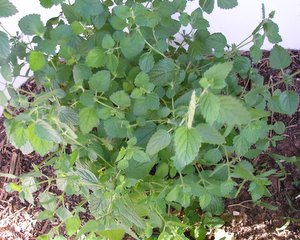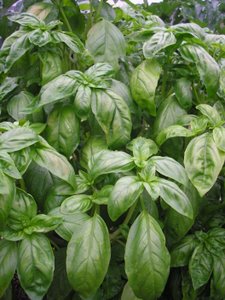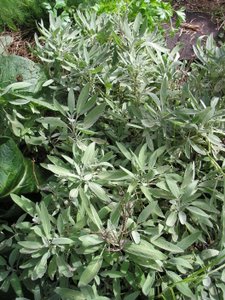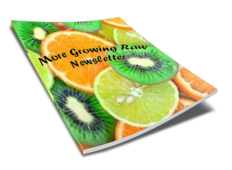|
Herbal Sleep AidsHow to Make Herbal Sleep Remedies
Trying to get to sleep? Herbal sleep aids can give you a gentle nudge towards rest. You can make a simple herbal sleep remedy at home using ingredients grown in your garden. Some of the best herbal sleep aids are commonly grown and hardy herbs. You can cultivate your own medicinal herb garden or source dried herbs from your local health food shop. Particular herbs are useful for inducing sleep because they can reduce anxiety, relax the muscles in your body and induce a feeling of calm. These include chamomile, lemonbalm, catnip, basil, bergamot, sage, feverfew, hops, valerian and lavender. The advantage of using herbal sleep aids is that you can enjoy a refreshing sleep without experiencing grogginess upon waking. Inform yourself about the safe use of herbs before experimenting with herbal medication, especially if you are pregnant, breastfeeding, planning to use herbal remedies for children or have existing medical problems. Don’t use strong herbal sleep aids such as valerian if you are already taking sleeping tablets. ChamomileChamomile is a well-known and popular herbal relaxant, readily available in teabag form. Chamomile works by reducing stress induced symptoms such as headache, stomach tension and indigestion. It can also reduce muscular soreness associated with the stressful effects of chronic pain. It has a gentle flavour that’s fine on its own or can be enhanced by adding honey or lemon juice. Chamomile is often available as a sleepytime blend in combination with other relaxing herbs such as hops or valerian.Chamomile is a short, spreading plant that grows best in rich, well-drained soil and needs extra TLC in hot weather. Its flowers are very pretty; a yellow centre surrounded by slim, white petals. Lemon balm Lemon balm is my personal favourite as I enjoy it’s slightly lemony flavour and gentle potency. It’s a great “wind down your mind” tea. I use it regularly as part of my sleep routine, but give myself a break from it every couple of weeks as it’s a member of the mint family. Herbs from the mint family are not suitable in large or continuous doses, especially for those suffering from thyroid problems.
Lemon balm is my personal favourite as I enjoy it’s slightly lemony flavour and gentle potency. It’s a great “wind down your mind” tea. I use it regularly as part of my sleep routine, but give myself a break from it every couple of weeks as it’s a member of the mint family. Herbs from the mint family are not suitable in large or continuous doses, especially for those suffering from thyroid problems.Lemon balm lessens anxiety and relieves stress. It’s the best sleepytime herb for kids as its flavour is so pleasant and its effects quite mild. Always use herbs in reduced dosages when giving remedies to children and check for allergies first. Lemon balm grows easily into an attractive shrub with deep green oval leaves and small white flowers. CatnipCatnip can help you calm down and fall asleep more easily and may also reduce anxiety and depression in some people. Catnip is also from the mint family but it’s a step up in strength from lemon balm, and has a stronger but still pleasant flavour. I think it tastes more grassy than most of the other herbal sleep aids. It induces sleep more readily and works as a sedative. It also contains minerals with anti-anxiety and anti-depressant functions. Weak doses of catnip are suitable for short-term use by children but don’t use it long-term or if you suffer from thyroid problems.Basil
You may be surprised to learn that one of the most popular culinary herbs is also very useful medicinally. If you’re seeking a last minute herbal sleep remedy you might find that you at least have some basil in your garden or on your windowsill. Basil can be used to treat headaches and insomnia, reduce anxiety and tension and soothe nausea and indigestion. This is very handy to know because basil is such a commonly grown plant – people keep it around for cooking purposes. Basil seems to like growing in crowded conditions so group several plants together in one pot. Protect basil from hot conditions as it bolts quickly. BergamotBergamot is a relaxing herb that helps ease tension. It’s a good herbal sleep aid to use if you’re suffering from sleeplessness due to cold or flu as it also treats fever and cold-related symptoms. Avoid bergamot if you’re pregnant as it’s also used to induce menstruation.Sage Sage is another good choice if you’re coming down with cold or flu as it has antiseptic properties in addition to its sedative effects. Sage is a stronger working herb that eases headaches and muscular tension. It has a distinct flavour but is surprisingly pleasant as a tea when you make your own herbal infusion using freshly picked leaves. Sage is hardy and grows in most soils, but needs a lot of sun.
Sage is another good choice if you’re coming down with cold or flu as it has antiseptic properties in addition to its sedative effects. Sage is a stronger working herb that eases headaches and muscular tension. It has a distinct flavour but is surprisingly pleasant as a tea when you make your own herbal infusion using freshly picked leaves. Sage is hardy and grows in most soils, but needs a lot of sun.FeverfewFeverfew is on the list as a sleep-inducer because of its powers in reducing fever and the stressful effects of migraines. It contains an effective anti-migraine chemical called parthenolide. Feverfew can also help ease the pain associated with fever, menstruation and arthritis so that you can finally get to sleep. It has abortifacient effects and should not be taken by pregnant women.HopsHops aren’t just for brewing beer – they also have a sedative effect and ease the symptoms of nervous indigestion. Hops reduce headaches, anxiety and tension. The strobilus enclosing the flower of the female hop plant is the part used for medicinal purposes. You can’t tell the sex of the plant until it flowers. Hops like rich and well-drained soil in a sunny position.ValerianIf you just can’t seem to stop your monkey-mind from chattering, then valerian might be just what you need – but only for short-term use. Valerian has wide-ranging sedative effects and has long been used to treat stress-related conditions. It also eases indigestion, muscular soreness, menstruation pain, cramps and menopausal symptoms. Valerian is a strong herb and shouldn’t be taken with other sleeping medication, especially over long periods. Valerian plants prefer some shade and moist, humus-rich soils.LavenderYour grandmother might have told you to put the dried flowers of English lavender under your pillow to help you sleep. As well as being used as aromatherapy, the flowers of English lavender can be made into a useful tea. English lavender lightens depression and aids sleep and is also useful for treating coughs and colds. Oil of lavender can be rubbed onto your skin to treat headaches, muscular tension and soreness.Related Articles Back to Growing Herbs from Herbal Sleep Aids - How to Make Herbal Sleep Remedies
Back to Healthy Eating Guide home from from Herbal Sleep Aids - How to Make Herbal Sleep Remedies
|
Are you as healthy as you can be?
Take action to lift your energy and vitality levels beyond recognition.
Focus on
building healthy eating habits for just one month with
Veg Up and you’ll enjoy the effects for years. You will amaze yourself when you see how much more you can achieve.
More Growing Raw
Newsletter
Be sure to subscribe to "More Growing Raw" newsletter to receive monthly healthy eating tips, Growing Raw news and updates.
Most Popular Articles
- Green Smoothie Health
- Raw Food Health Levels
- Growing Vegetables in Containers
- Healthy Eating Plans
- List of Healthy Food to Always Eat Organic
- Growing a Vegetable Garden in a Polytunnel
- All Natural Detox Diet
Does your body need a fresh start?
Brighten up with all natural detox routines that give your body a cleansing push towards healthier patterns.
Learn how to
detoxify your body naturally. Your body is smart enough to clean itself without expensive detox pills and potions.








